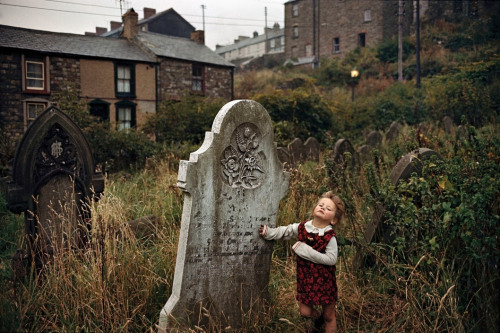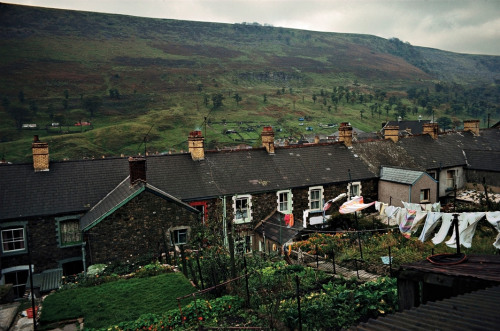You Don’t Pass Or Fail At Being A Person, Dear.
You don’t pass or fail at being a person, dear.
Neil Gaiman The Ocean at the End of the Lane
More Posts from Dclcq and Others
The Appetizer for Fuzzy
"Bart Kosko, the leading proponent of fuzzy thinking, has degrees in philosophy, economics, mathematics and electrical engineering but even in his book there is a clear-cut thesis that ties all this complex thinking together: to explore the paradigm shift from black and white to gray, from bivalence and binary (either/or) thinking to multivalence, a less simplistic but more accurate way of thinking that responds to life in matters of degree, integrating probability and ambiguity in all modes of operation. (Kosko, Bart. Fuzzy Thinking. New York: Hyperion Press, 1993.)
Fuzzy thinking demands that you increase your options. What are all the possible things or events or conditions that could occur as you explore something? You must use your imagination much more actively than usual. Fuzzy thinking comes from fuzzy math sets in which endless possibilites have been explored. So to unite fuzzy thinking with traditional logic, you need to know more, feel more and think more exhaustively.
Perhaps the word "fuzzy" is misleading for undergraduates. Gratuitous ambiguity due to laziness is not the goal, but rather an inclusion of degree, probability and ambiguity in the formulation of structures that respond to phenomena. In other words it is harder and more intellectually demanding to engage in fuzzy thinking. Kosko has a thorough understanding of traditional logic and its fallacies as well as all the specific scientific applications of fuzzy thinking.
Traditional logic, with all its artificiality, is based on language, but the irony is that the flesh of language is our bodily experience, the cries and sighs and gurgles of needs and wants that slowly grow into more complex sounds that usually connote more than they denote. Nature constantly speaks a language that is homospatial and homotemporal, layered and nonlinear in space and time, and this language still resides in our subconscious world of dreams. While expository writing necessitates so-called logical, grammatically correct sentences that grow into coherent, well-developed paragraphs integrated by a thesis, this type of writing should not exclude the multivalent nature of experience, of our bodies, our dreams and our environments. Clarity in expository writing is important so you must redefine words in the context in which you are using them but it's okay to struggle with solutions, to end with answers and to obfuscate a cause-effect relationship with a provocative "what if?" "
- Julia L. Keefer

I frequently hear the same yearning expressed in my consulting room – the wish for the world to disappear, for a cessation of any feelings, whether positive or negative, that intrude on the patient’s peace, alongside the painful awareness that the world’s demands are waiting on the way out. You feel burnout when you’ve exhausted all your internal resources, yet cannot free yourself of the nervous compulsion to go on regardless. Life becomes something that won’t stop bothering you. Among its most frequent and oppressive symptoms is chronic indecision, as though all the possibilities and choices life confronts you with cancel each other out, leaving only an irritable stasis.
Josh Cohen

Madonna Kolhbenschlag, in Kiss Sleeping Beauty Goodbye, however, pleased me very much when she explained that in the original version of the Frog Prince story, the frog was transformed not by a kiss but only when the princess acknowledged her disgust, picked him up, and threw him in the fire. I have seen more men changed, I think, when their wives stopped putting up with their chauvinism than through their acceptance of it. I have seen children change when their parents thought enough of them to demand that they act in keeping with their inner wisdom, or at least common sense. I think love, wise love, sometimes demands a transformative toss into the fire, rather than the reinforcement of beastliness or froggishness in people.
Carol S. Pearson



Last rays in a snowy forest
niiloi
Mul ei ole olnud mingisuguseid eesmärke, sest ma ei näe eesmärke. Minu silmade ees on tundmatu maastik, minu tee kulgeb sellesse maastikku või ta suubub sellesse või läheb edasi. Ma ei näe selle maastiku üksikasju. Ma ei näe, mis on mägede taga, mis on teekäänakute taga, mis on teispool orgusid, teispool metsi, aga ma pean teadma suunda. Ja see suund on minus endas olemas. See suund on otsekui mingi heli, mingi toon, mida ma ei tohi kaotada. See on kõige tähtsam. See on peamine. Ja kõik muu tuleb. - Fred Jüssi 1935 - 2024

The Princess and the Trolls –The Changeling, by John Bauer, 1913.






